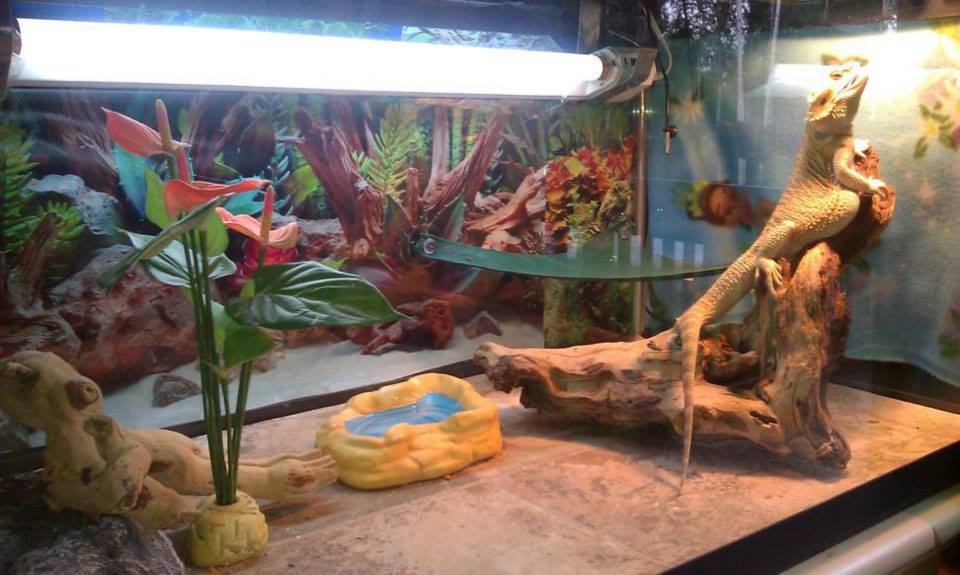The Ultimate Care Sheet for Bearded Dragons: A Beginner's Guide
Introduction to Bearded Dragons
Bearded dragons are fascinating and popular pets. They are gentle, friendly creatures that are easy to care for, making them a great choice for beginners. However, like all pets, they require proper care and attention. In this care sheet, we will cover all the basics of bearded dragon care to help you ensure your pet is happy and healthy.
Housing Requirements
Bearded dragons require a spacious and safe environment. A standard size for a single adult bearded dragon is a 40- to 50-gallon tank. For two bearded dragons, a 75- to 120-gallon tank is sufficient.

The tank should be equipped with a basking light, a UVB light, and a thermometer. The basking light provides heat and light, while the UVB light provides essential vitamins and helps with digestion. The thermometer will help you monitor the temperature inside the tank.
Temperature and Lighting
Bearded dragons are cold-blooded animals and require a specific temperature range to maintain their health. The basking area should be around 95-105°F, while the cool area should be around 75-85°F. At night, the temperature can drop to 65-75°F.
Lighting is also crucial for bearded dragons. They need access to UVB light to help them absorb calcium and other essential vitamins. The UVB light should be on for 12-14 hours a day.
Feeding and Nutrition
Bearded dragons are omnivores, which means they eat both plant and animal matter. They require a balanced diet that includes vegetables, insects, and occasional fruit.

Feed your bearded dragon once a day, preferably in the morning. A juvenile bearded dragon should be fed insects such as crickets, mealworms, and dubia roaches. An adult bearded dragon should eat a mix of insects and vegetables such as kale, collard greens, and squash. Avoid feeding them foods high in oxalates, such as spinach or beet greens.
Hydration
Bearded dragons need access to fresh water at all times. You can provide water in a shallow dish or with a spray bottle. Additionally, you can provide a separate soaking dish once or twice a week to help them stay hydrated.
Handling and Socialization
Bearded dragons are docile and gentle creatures, making them easy to handle. When handling them, be gentle and support their body. It’s also important to socialize them from a young age by handling them regularly. As a result, they will bond with you and become more comfortable with human interaction.
Health Concerns
Bearded dragons are generally healthy and hardy animals. However, they are susceptible to some health issues. Signs of illness can include lack of appetite, lethargy, weight loss, diarrhea or constipation, and respiratory problems. If you notice any of these signs, it’s best to take your bearded dragon to a reptile veterinarian.
Conclusion
Bearded dragons are wonderful pets that are easy to care for with the right guidelines. By following the housing, temperature and lighting, feeding and nutrition, hydration, handling and socialization, and health concerns guidelines above, you can provide your bearded dragon with a healthy and happy life.
